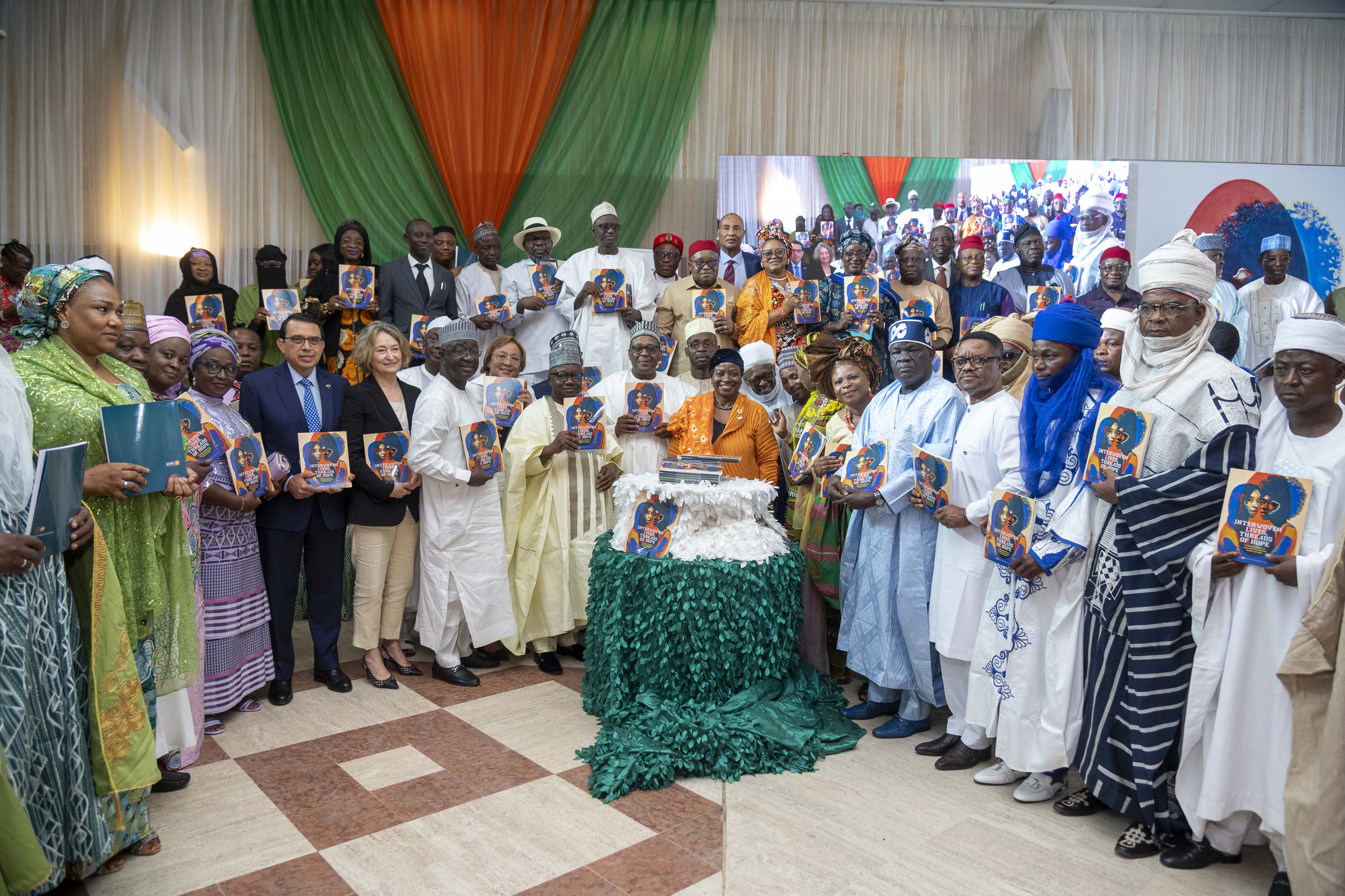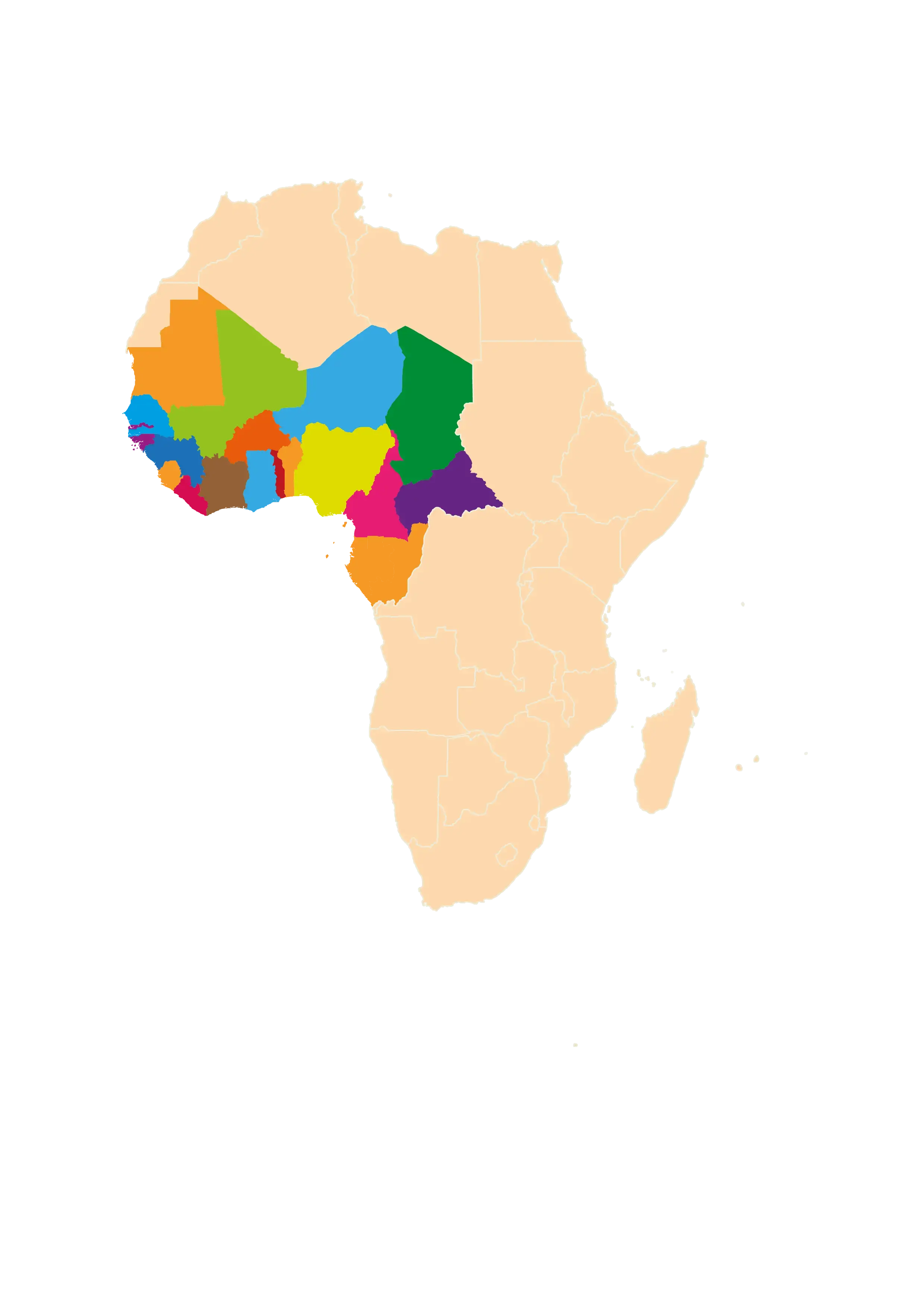Abuja, Nigeria (April 24, 2024) The State of the World Report 2024: “Interwoven Lives, Threads of Hope: Ending Inequalities in Sexual and Reproductive Health and Rights” was unveiled in Abuja by UNFPA executive director, Dr Natalia Kanem and Nigerian authorities during a regional launch event that gathered around 300 high-level guests at the Presidential Villa Banquet Hall.
Nigeria’s President Bola Tinubu was represented by the Coordinating Minister of Health and Social Welfare, Prof. Ali Pate. During his opening address on behalf of the president, he said that the theme comes with a “narrative that reminds us that, globally we are composed of eight billion threads of hope- eight billion people interwoven with each of the threads being very unique.” “The regional inauguration of the 2024 SWOP report in Nigeria and the presence of the UNFPA Executive Director, is a reminder that Nigeria should prioritise data generation to provide the baseline and showcase progress towards the indicators of the Sustainable Development Goals (SDGs),” he said.
“We are consulting and working closely with the National Population Commission (NPC) to get this exercise right. We count on the support of UNFPA and other partners to get it right,” he added.
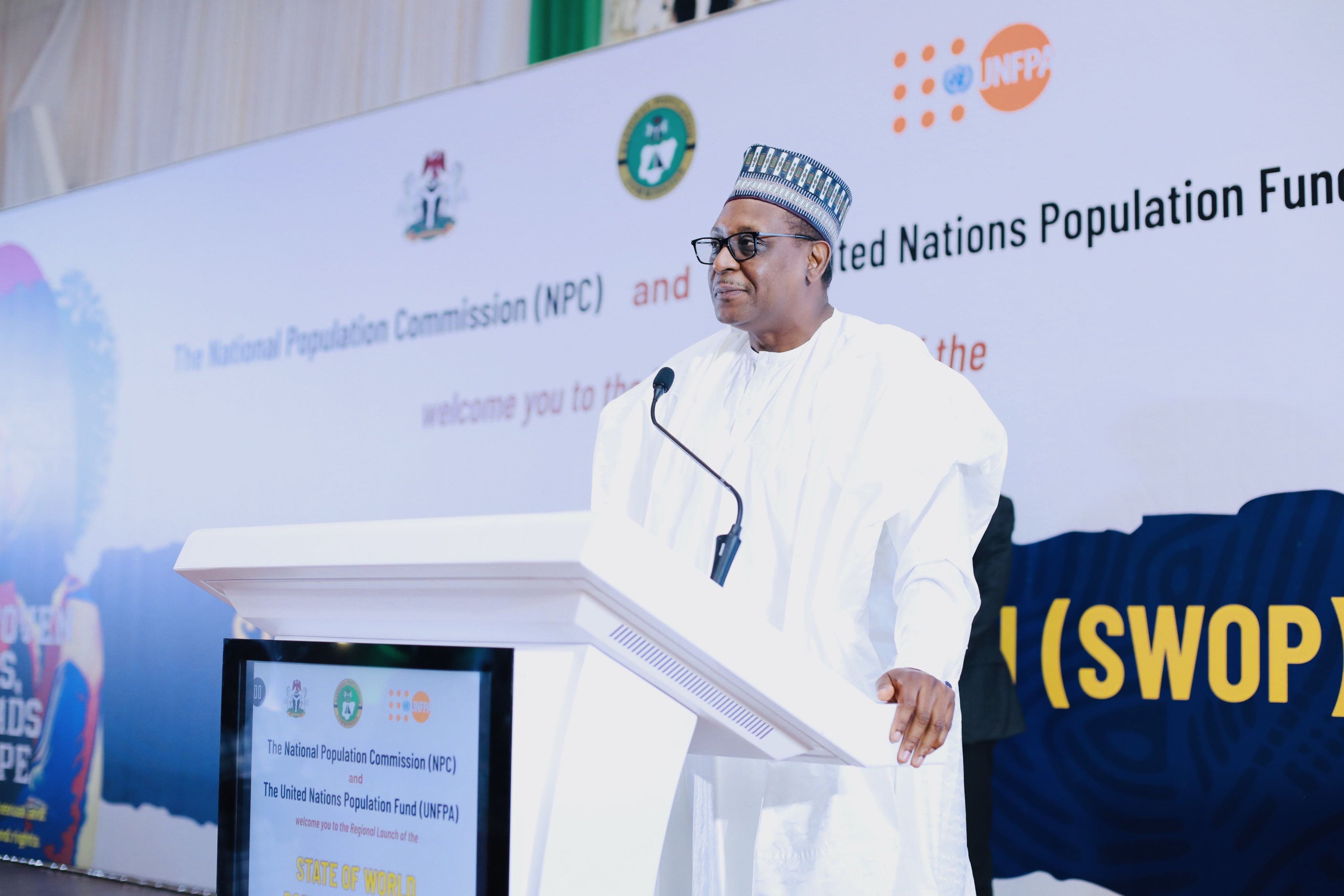
Nigeria is among the eight identified countries to account for more than half of the projected increase in the world population up to 2050. The other countries are Democratic Republic of Congo, Egypt, Ethiopia, India, Pakistan, Philippines and the United Republic of Tanzania. In her address, Dr Kanem said the report presents important data which shows that in many countries, inequalities in such key measures as access to health care have been reduced. In other places however, disparities are widening, and inequalities still persist everywhere.
“The report highlights that since global measurements have been kept, two countries – India and Nigeria – have recorded the highest number of maternal deaths. The remarkable reduction in the number of women worldwide dying in childbirth, 34 per cent since 2000 is largely attributable to progress in those two countries. Nigeria’s achievement in reducing the maternal death rate by more than 11 per cent between 2013 and 2018 must be applauded", she said.
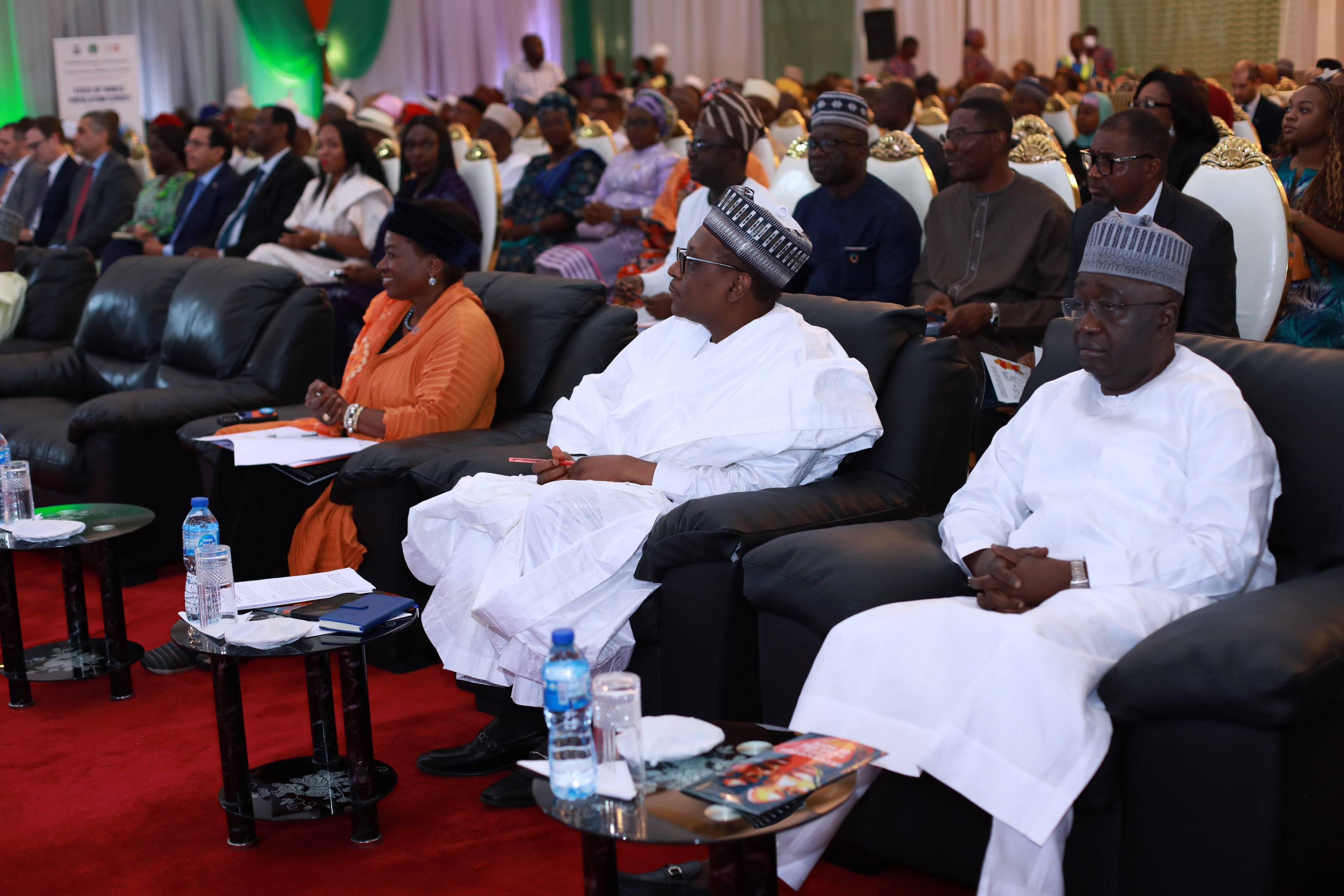
Kanem also said that there have been advances in combatting gender-based violence and harmful practices, adding that in Nigeria, there has been a 10 per cent drop in adolescents subjected to female genital mutilation in the past decade. Progress has also been made as the proportion of women serving in parliaments has more than doubled globally, however, that progress is slowing down, while by many measures it has stalled completely. She noted that since 2016, the world has made zero progress in saving women from preventable deaths in pregnancy and childbirth.
“One important reason, our report shows, is that we have not prioritised reaching those furthest behind. We see, for example, that barriers to health care fell fastest for women who are more affluent, educated and privileged. Many of these findings are the result of having better data than ever before. Thirty years ago, maternal mortality rates were only rough estimates,” she said. “Today, data allow us to see clearly the unacceptable rates at which women are dying while giving life; data also show the inequalities that are quite literally killing them,” added Dr Kanem.
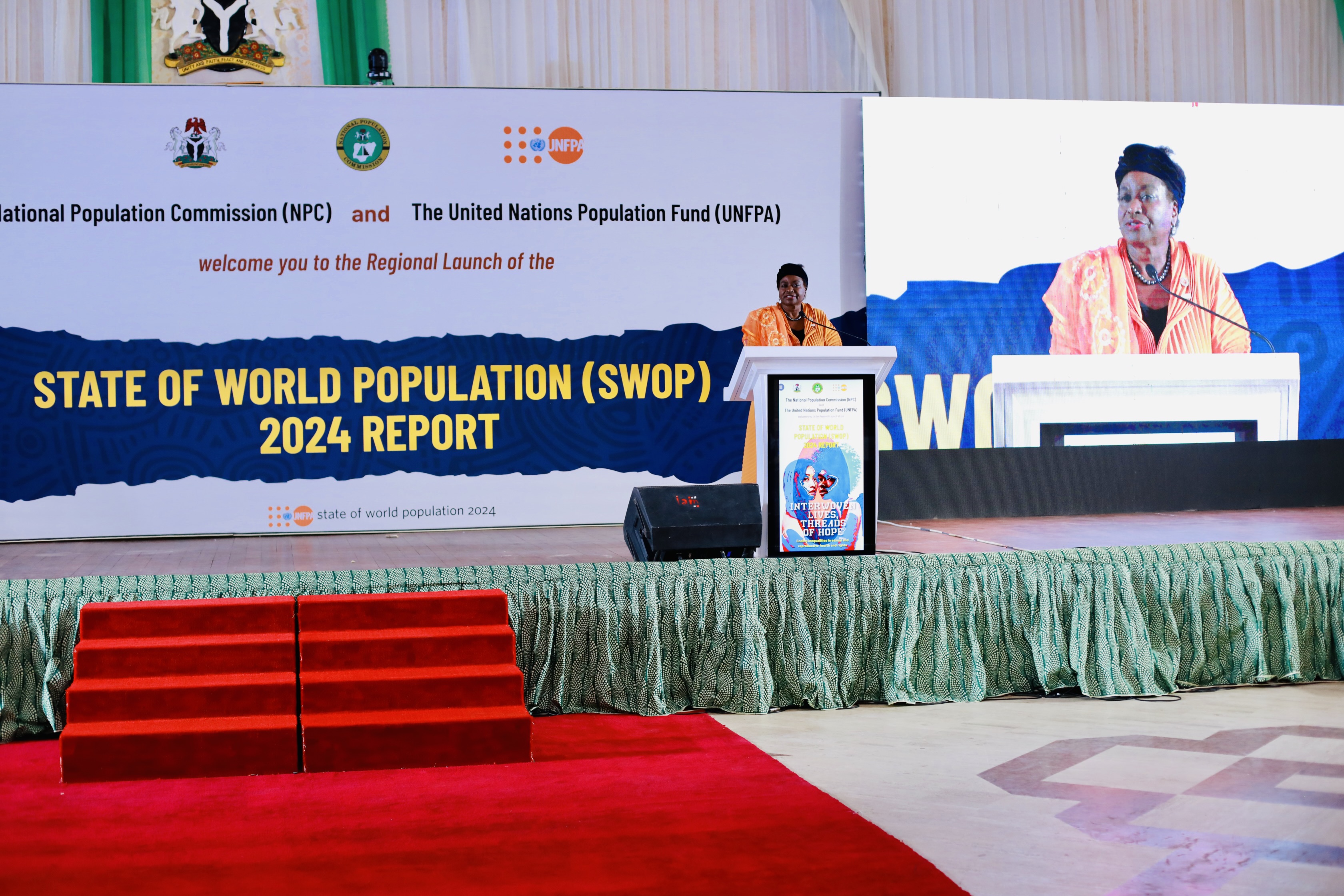
Speaking about the Maternal Mortality Rate in Nigeria, she said that in spite of the progress recorded, it still remained high at over 1,047 per 100,000 live births. Kanem however, pledged UNFPA support for the country to change that statistic.
Later the Banquet Hall came alive thanks to the vibrant troupe of dancers whose rhythmic drumming and energetic performances set the tone for the event.
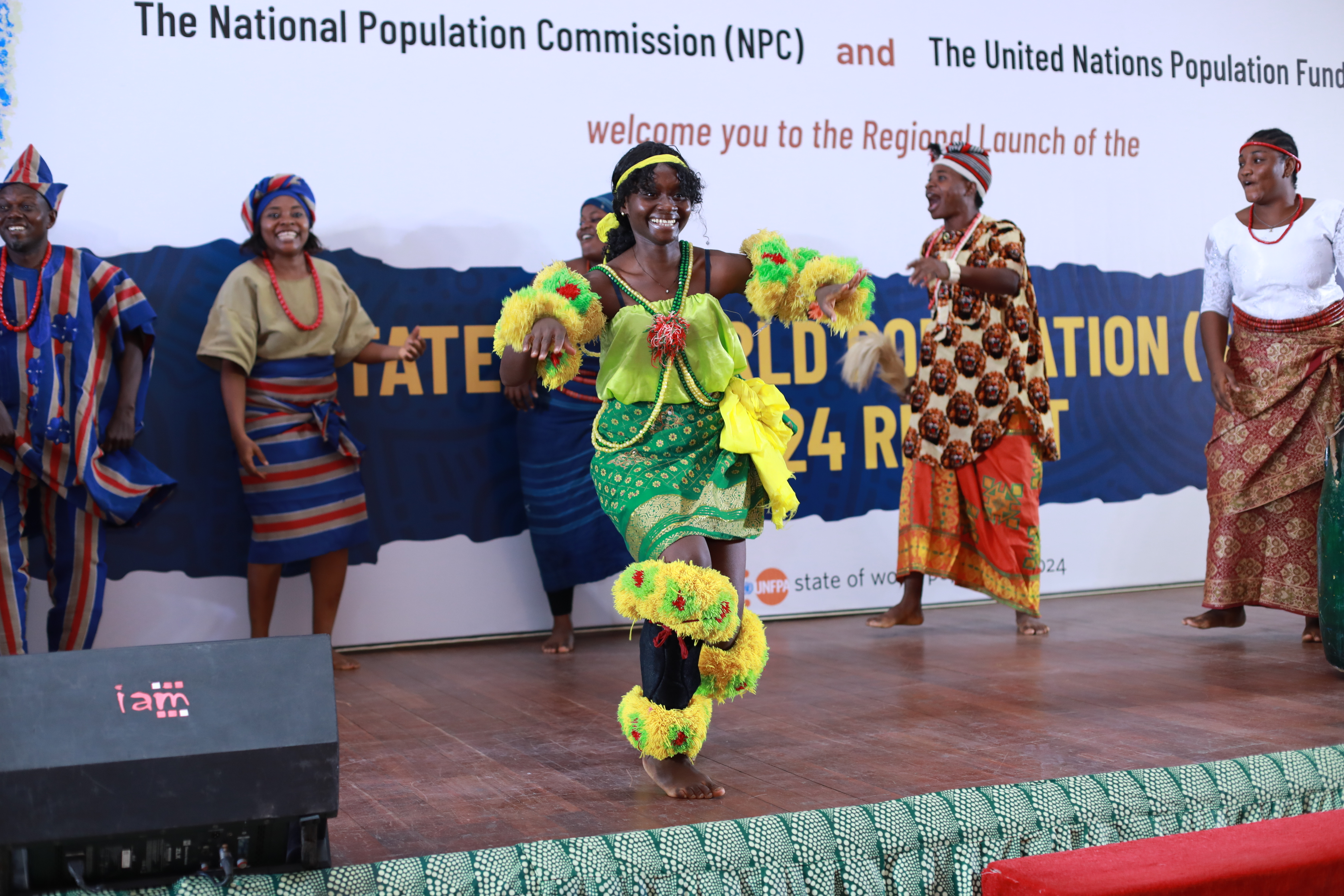
Amidst the palpable excitement, Seyi Bolaji, a young activist from Stand with a Girl initiative representing young people at the regional launch, took the stage, her impassioned chants of "For the Youth" resonating throughout the room, stirring up a wave of enthusiasm. Her powerful words ignited a fire within the audience, emphasizing the importance of youth empowerment and inclusion.
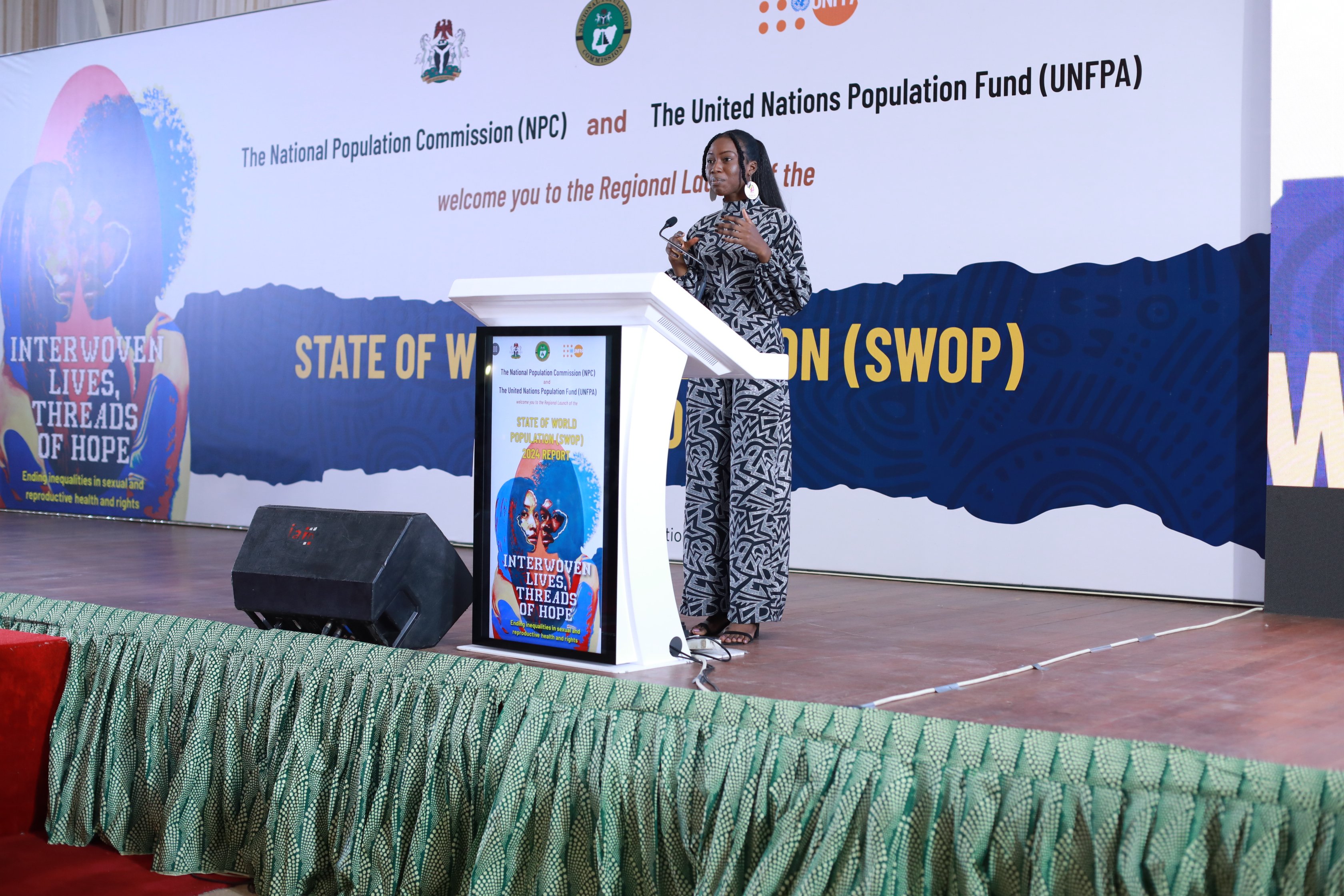
The unveiling ceremony lasted two hours, leaving a lasting impression of solidarity and commitment to advancing the rights and well-being of young people worldwide.
